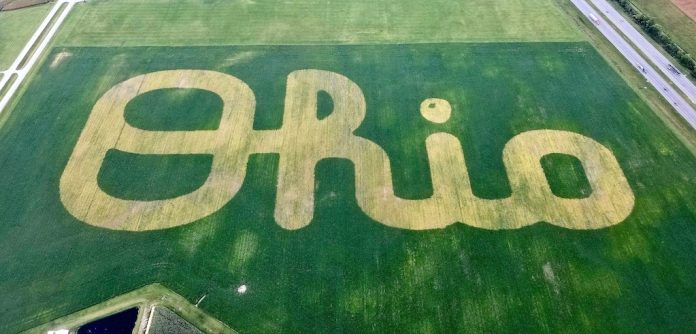
COLUMBUS — Wooster, Ohio, has long played an important role for The Ohio State University College of Food, Agricultural and Environmental Sciences. Two of its major components, the Ohio Agricultural Research and Development Center, and the two-year associate degree-granting program, the Agricultural Technical Institute, got their start there in 1892 and 1968, respectively.
While in past years, the research and student parts have operated separately, new changes are afoot to unify the campus. A first step in ensuring this evolution is a name change to CFAES Wooster. Changing the name of the campus will also involve shared resources, infrastructure, personnel and equipment.
“It allows us to think about this location as a full campus, rather than simply two components,” said Cathann A. Kress, vice president of agricultural administration and dean of CFAES. “It will brand the location as an integral part of CFAES and provide a gateway for Ohio State in northeast Ohio.”
Growth
The research center has evolved to be the main research enterprise of the entire college, encompassing not just research in Wooster, but activities in Columbus and statewide — including outlying agricultural research stations in Kingsville, Caldwell, Jackson, Willard, Fremont, Custar, Coshocton and South Charleston.
A renaming and rebranding of the 4,200-acre campus as CFAES Wooster is but one of many planned changes. Road and campus signage will be updated along with campus infrastructure, such as roads and sidewalks, buildings and laboratories. Infrastructure enhancement and renovation capital projects have been underway since 2017.
Building
In January 2021, a new 60,000-square-foot, $33.5 million campus science building will be officially opened.
“This building has been a great bright spot,” said Anne Dorrance, CFAES associate dean and Wooster campus director. “To have faculty and students be able to perform cutting-edge research together in a building appropriate for the type of science we do now is really exciting.”
Seen as the new central hub of the Wooster campus, the science building will feature a first-floor cafe that will serve as a social gathering space, a large, divisible multipurpose room to support teaching, research, outreach and community programs, and open seating and gathering space.
The Department of Entomology’s Bug Zoo will also move into the science building, which will allow the collection to be showcased for visitors and school groups. There will be four entomology research labs for faculty and graduate students and two undergraduate chemistry teaching classrooms for ATI students.
The second and third floors will have offices, research labs, space for small conferences and shell space to allow for additional growth. Outdoor space will include an outdoor patio and pollinator garden.
Involvement
In addition to entomology, the CFAES Wooster campus includes representatives from the Departments of Animal Science, Food, Agricultural and Biological Engineering, Horticulture and Crop Science, Plant Pathology, the School of Environment and Natural Resources and the Food Animal Health Research Program.
At present, 112 faculty and 356 staff are employed on the Wooster campus. Student enrollment includes 540 ATI undergraduates and 82 graduate students. The institute is one of a handful of two year agriculture programs in the nation and offers 31 programs of study. The institute maintains a 99% job placement rate for all graduates within four months of graduation.
Many students who start at the institute also transfer to main campus in Columbus, taking advantage of CFAES’ goal of a seamless Buckeye experience. Last year, over 200 students continued their studies in Columbus.
Faculty and staff in both Wooster and Columbus have expertise in agricultural-related research, innovations, lifelong learning and continuing education, higher education, workforce development and technical education and industry partnerships. Additionally, workforce certifications, trainings and approximately 20 OSU Extension events are held in Wooster for community members each year.
“We want CFAES Wooster to be seen as a comprehensive campus, with impact, opportunities, and potential as a hub for discovery, innovation, learning and partnerships,” said Kress.









